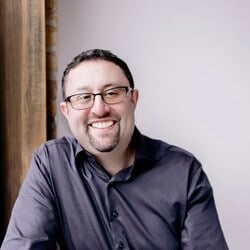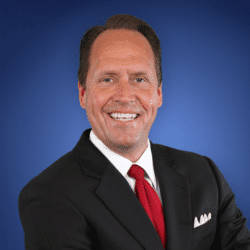How Positive Psychology Helps your Team GROW
Are you a great leader? Does your organization have a great culture?
If the answer isn’t a solid yes to either of these questions, don’t despair. Leadership and culture – like most worthy pursuits – aren’t simple matters of have vs. have-not. They’re created by aligning purpose, values and habits in the service of common goals. In short, they’re both about bringing out the best in people.
Because leadership and culture aren’t fixed, we can transform the culture of organizations and the leadership skills of individuals by learning mindsets, habits and behaviors that support the growth of our people. One of the best sources from which to learn the skills that can help grow our teams, organizations and even ourselves is through the study of a field called positive psychology.
Here’s how positive psychology can help your team GROW.
What is Positive Psychology?
Positive psychology is based on the idea that people want to lead happy and fulfilling lives. As it applies to leadership and organizational culture, it is the study of how to manage people’s strengths so that they can be happy and fulfilled in their work. It differs from other schools of thought in its focus on managing from strength rather than identifying and correcting weaknesses. In short, it’s based on the idea that people want to be – and are capable of being – happy. It’s focused on gaining the skills and habits that support happiness.
Positive psychology is closely related to another concept called growth mindset. Growth mindset is based on the idea that people have the ability to grow and change, to learn new habits that can help us meet our goals. Growth mindset is the opposite of fixed mindset, which says that you are the product of your innate or fixed talents and abilities.
Fixed mindset says you’re a good employee or leader, or you aren’t; you have talent, or you don’t. Growth mindset and positive psychology both say that you can become the leader or employee you want to be by acquiring skills and habits that support that goal.
Positive psychology and growth mindset empower employees and leaders alike to be more engaged in and fulfilled by their work. It helps managers, leaders and organizations bring out the best in their people, helping them grow and develop professionally and personally.
It’s about being a coach rather than a boss, teaching people the skills they need to succeed at work and in life.
Coaching – The Key to Growth
Millennials are now the largest demographic in most workplaces around the globe. Yet organizations worldwide are struggling to attract and retain younger workers: the average Millennial stays at a job for just two years, compared to five years for Gen Xers and seven years for Baby Boomers.
Some human resources experts say organizations should simply give up on keeping Millennials over the long term. However, there’s a problem with this logic. First, it’s difficult to find good employees who share an organization’s values and are committed to its purpose; when you do find them, they are hard to replace. Second, training employees is expensive and time-consuming – so the inability to retain good people is a serious business problem that’s costing organizations money, and impeding their ability to grow.
So, what is the key to this retention problem? What’s the number one thing most Millennials say they are looking for at work? And what do the majority of them say they’re not getting?
It’s coaching. According to Gallup, only 19 percent of Millennials say they regularly receive feedback at work, and even fewer – just 15% – say that they ask for feedback. Yet, Gallup reported the highest engagement with work among those who received feedback from managers at least once per week.
According to the study, what isn’t effective at inspiring engagement is annual reviews: the management tool that exists primarily to benchmark performance and identify problems. What works better, says Gallup, are more frequent, informal one-on-one sessions. In short, what Millennials – and perhaps, most employees – want, is coaching that helps them – and the organization – grow..
Coaching People to GROW
Gallup’s findings dovetail with recent research by Google on managing effective teams. Google found that the essence of being a great manager is being a great coach. And at the organizational level, great cultures are those where managers are also encouraged to be mentors, responsible not just for the performance and work output but for enhancing the emotional well-being of the individuals they manage, helping them to engage and be more fulfilled by their work.
Google based its GROW coaching model on this idea: that the role of leaders is to be developers of people, to help people fulfill their potential. The GROW model is loosely based on some of the same ideas that are promoted by positive psychology and growth mindset: that people want to do their best, and that they can improve with effective coaching.
The GROW model is quite simple. It’s about asking questions that can help employees and managers set and achieve goals together. It boils down to asking employees:
Goal – what do you want?
Reality – what’s happening now?
Options- what could you do?
Will – What will you do?
The key here is that this is something that should happen regularly, and should be employee-driven as much as possible. In this model, the employee owns the outcome; the coach is there to provide feedback, guidance and encouragement. Although this model does take more time than a once-a-year or infrequent review, it’s a more effective way to bring out the best in each employee.
What does it mean to say someone is a great leader? What is the difference between merely good and truly great? In our research at ProHabits, we’ve found that great cultures and great leaders combine driving habits, shared values and lived habits. Of these three, it’s habits like positive psychology, growth mindset and effective coaching that really set great organizations and great leaders apart – habits that can be learned.
12.13.2017 Interview with Adam Fridman
How did you begin your speaking career?
We begun writing a book, Science of Story two years ago. In the process, we set a goal, to interview 1,000 companies. In the process, as I conducted interviews, leaders of organizations begun to ask for interviews to be expanded and include their leadership teams. Next thing I know, what we believe is shared with larger and larger audiences.
What types of results do clients experience after your programmes & keynotes?
Through my speaking and my platform Prohabits, individuals are reporting leaps in personal achievements while others report that they have changed the way they interact with one another at work. We are even seeing the first stages of improvement in individual focus, resilience, and interpersonal empowerment. As our collaborating organizations move into the next phase of our research, we will be tracking this individual growth along side key business outcomes and cultural metrics.
What is your favorite topic to speak about?
I believe that in a world full of distractions, people seek deeper meaning in their lives and work. A culture centered on purpose is the key to attracting a tribe of customers and employees that are invested and engaged in your organization’s success. I speak to organizations to have them make the conscious choice to pursue purpose. Topics that I speak about are the importance of positive psychology and how this can connect to the workplace to employees all the way to talking about connecting people to company purpose and values with habits.
Do you have a favorite experience from your speaking career?
Recently I went to Finland to speak at Slush conference, which brought together the leading actors of the global tech scene to Helsinki. I spoke with a company and showed the audience how habits and being purpose driven is important.
What are your biggest goals in your career currently?
I recently started a company ProHabits. ProHabits is on a mission to examine the connection between personal growth and organizational success. Our human-centric tech aligns personal development with organizational growth by delivering opportunities for living core values on a daily basis. We adopt the perspective of ubiquitously appreciated psychologist Abraham Maslow to explain the logic behind ProHabits. We believe that as individuals grow towards self actualization, they become more engaged and inspired at work.
The ultimate goal of ProHabits is to make living your values a habit. To achieve this goal, our platform measures and promotes personal growth via positive contributions to organizational culture. Ultimately, our research will determine how people’s daily micro-interactions can have a macro-impact for organizations.
What got you interested in company culture and purpose?
Three years ago, I was fortunate enough to come across a TED Talk by Simon Sinek; a speaker and author that has focused his attention on leadership and sparking change within organizations. Between his talk, and his book, titled “Start With Why”, Sinek has had more of an influential and monumental role in my professional and personal development than any of my other experiences combined.
After finding his talk and reading his book, I had the opportunity to interview Simon Sinek in which I was able to dive deeper into his world of professional development and leadership. Through our interview, I was able to fully grasp the concept of “why” which ultimately sparked the creation of Science of Story. Sinek discussed the process of discovering one’s “why” and how it has become a sort of personal awakening that causes an individual, organization, or even community to just click.




 USA
USA 

